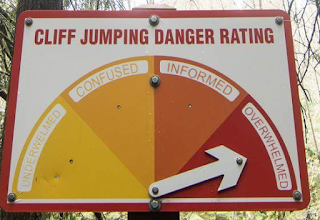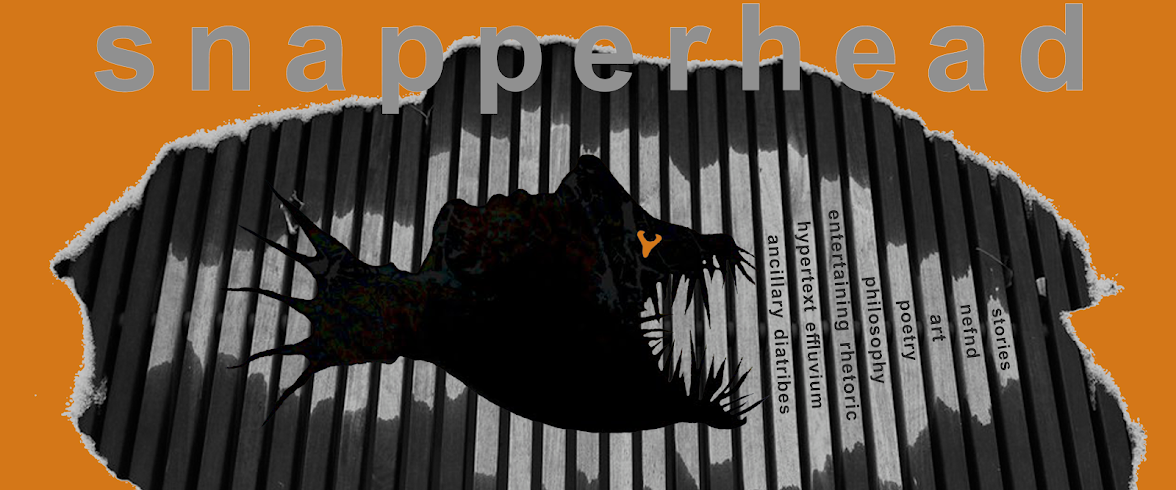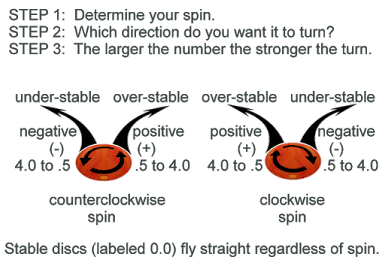
|
| call-back to Under-Overwhelming essay |
To those who’ve chosen to jump off this cliff, heedless of the challenges, I commend you for your open-mindedness, willingness to try your brain at new concepts, and your marathon-level attention span (if you make it to the end).
And to those comfortable within this ken: I thank you—up-front—for perusing the word-imagery fabrications of a philosopher-artist such as myself. Please bear-with my liberal application of monsieur em-dash, madame hyphen, and cousin parenthesis.
 |
| hover for brief description �🔗 click for magnification or link |
Transliteration normally refers to slowly transcribing/translating—one character, word, symbol or hieroglyph at a time—one language into another. Because art and poetry can seem like a foreign language, I’m going to crawl around inside my own gulliver and explain how I created both the two-dimensional artwork and poem titled: woad poem. (Links are provided to add superfluous details or permit examining referenced artwork. Did I mention this is a deep dive?)
 It Begins With a Mote of Detritus With Pearl-Potential: Unsurprisingly, first ideas about a new creation can be
born-out-of (borrowed from) works of others, or inspired by the artist’s
earlier work. When I saw this strong-contrast image of a nude—in
December 2019 (while scrounging for creepy images for the collage
AULDLANGSYNE's Mailbox)—I recognized it would be perfect for a future artwork and got out my
butterfly net.
It Begins With a Mote of Detritus With Pearl-Potential: Unsurprisingly, first ideas about a new creation can be
born-out-of (borrowed from) works of others, or inspired by the artist’s
earlier work. When I saw this strong-contrast image of a nude—in
December 2019 (while scrounging for creepy images for the collage
AULDLANGSYNE's Mailbox)—I recognized it would be perfect for a future artwork and got out my
butterfly net.
Architect’s Eye, Engineer’s Ingenuity and the Passion of a Serial-Killer: When my time-to-create gland woke-up from a nap, I “found” about 50 similarly-stark images and began to experiment—slicing, smoothing, spinning, and fine-tuning. After many days of failing to get even a tickle of that solving-the-puzzle feeling (I never became fully-absorbed) I stopped trying to hammer-tune this
 Disappointing Creations Need Titles Too: First I stared at it, then wondered about it,
and—eventually—understood what failed to happen: I’d enjoyed the process
of finding “just right” image slices, but received no spark during
sculpt-construction. I was enthralled by the building blocks but I
disliked the structure. So, I devised a jarring meta-title:
imagine a suggestively-confusing title here. (Meta because a title asking you to think of a title, is
eating its own tale; and jarring because the adverb-adjective
sticks in one’s word-smithery—it is not really the opposite of
confusingly-suggestive which slides smoothly from eye to
lizard-brain, but not-not the opposite either.)
Disappointing Creations Need Titles Too: First I stared at it, then wondered about it,
and—eventually—understood what failed to happen: I’d enjoyed the process
of finding “just right” image slices, but received no spark during
sculpt-construction. I was enthralled by the building blocks but I
disliked the structure. So, I devised a jarring meta-title:
imagine a suggestively-confusing title here. (Meta because a title asking you to think of a title, is
eating its own tale; and jarring because the adverb-adjective
sticks in one’s word-smithery—it is not really the opposite of
confusingly-suggestive which slides smoothly from eye to
lizard-brain, but not-not the opposite either.)A Realization-Reenactment (Focused on Aesthetics): While doing the aforementioned disappointed-staring and title-devising, my attention kept returning to the left-side of the artwork. What was drawing my eye? Was I merely recognizing the first found-image pearl in that section? Maybe a change in distance? Thumbnail mode caused my interest to definitely be re-piqued, but, in close-up, the miasma of interlocking/overlapping shadows, edges, silhouettes, and flimsy fragments of fifty female photo-montaged forms forced my curiosity to flee (whew). But, the leftmost portion—no matter if distant or full-screen—remained intriguing and its abstract-composites continued to tantalize.
A Literal Return to the Drawing Board: With the leftmost portion as a focal-point, I restarted the cut-stitch-paste-gluing engine. This lasted for a few daze. After becoming deeply engrossed in the process, trimming and/or deleting about fifteen of the most detailed original images, changing the color pallet on at least ten, and totally redesigning the size and focus, the resulting artwork works. For me. And that’s all a creator can use to determine finish-quality. It is appropriately asymmetrical, contains both blurred and crisp details, and the rest is mere suggestion, hint, and supposition. Pleasing to the eye. Maybe a smidgen-creepy, but that adds to the allure.
The More Difficult the Self-Challenges the Less Challenging the Self-Difficulties: Sounds like an aphorism, but challenging myself is a successful way to keep creating. My art keeps me learning. I decided to craft a poem to accompany this artwork, incorporating a phrase I coined in a letter:
...The little things are the big things. The big things might be able to take care of themselves, but ‘death by a million tiny cuts’—as metaphor—has an antithesis ‘bliss by a million tiny kisses’...Critics Refer to This Next Part as a Pointless Tangent; I Prefer to Call it a Brief Aside: I think it helps to think about a few claims made by Nietzsche in his 1872 work, The Birth of Tragedy from the Spirit of Music:
...the existence of mankind only appears to be justifiable when it is viewed as an aesthetic phenomenon...Nietzsche's book is a dense, complexly-expansive, review of classical Greek dramatic theater and music. Fourteen years later, in 1886, it was republished as The Birth of Tragedy, or: Hellenism and Pessimism with a second preface—written by Nietzsche himself—titled An Attempt at Self-Criticism. (The first preface, in both, was written by the composer Richard Wagner . . . yes that Wagner, of antisemitism infamy.)
...the highest form of artistic creation depends on some form of tension between opposing forces...
I found this excerpt from his self-criticism poignant, not only because he describes yours-truly, but he appears to be describing (with sarcastic self-deprecation) his “target audience”:
...artists with analytical tendencies with a capacity for retrospection (the type whom it’s always necessary to seek-out but with-whom one never wants to seek) who are also full of psychological innovations and artist’s-secrets...The Nuts and Brain-Bolts Leading Up to My Two Dimensional Artwork waod poem: My artwork descriptions, above, are definitely synopsis after-the-act. I was not thinking about how my mind was working as it was creating. (I understand some with less high-functioning autism are hampered by meta-meta thoughts-about-thoughts and—unfortunately—get bogged down, can't climb out of their own way, and suffer because of it.) In looking back, I recall that my odd-intuitive-creative neurons (my only nod to NEFND in this essay) encouraged my imagination, which influenced me to begin with the strong-contrast nude I caught in my butterfly net, which—in-turn—eventually led me to craft the final “found image” collage-compilation from dozens of (fair-use-borrowed or copyright-stolen*) erotic images.
I cropped the blackspace, mirror-flipped it, imagined the word poem reversed-upsidedown would approximate the word waod. [Climbing deeper: Actually, my thoughts snag-focused on the ash diphthong in the word aesthetic and, subsequently, I zoomed in on the visual near-symmetricality of m-w and p-d...which came very near (rch-close) to a voila moment...and a title was born.] Then I added the words, as title, at the mirror point and extended a small amount of white-grey to the left-edge's mirror point (literally a point) because I wanted to “break the rectangle rule” just a tiny bit.
The Bizarre Gears-and-Gristle-Soup Beneath the Circuitry of the Poem: With this, I had a tall, thin, abstract image, which I could place vertically—adjacent to my as-yet-unwritten poem. I also had a title. And, I had the phrase: bliss by a billion tiny kisses. That was
rarely are there anymore breathtaking dénouements in this place outside of
This place? . .the world . . . the Internet . . . this blog . . . or . . .
Since I linked a word in the first line, I chose to do it again. My second link was to the definition of idiom, which stumbled on and coin a phrase, are examples of. My third line breaks the pattern (does not end in a word which normally begins a phrase) and, instead of linking to the definition of a word, links to the description of a ancient torture technique called Lingchi, which I point out is the opposite of my bliss by a billion tiny kisses.
My forth line, however, does end in a preposition, and I continue the pattern by describing two more different types of cutting (the first medical the second figurative).
The fifth line continues the phrase begun at the end of the forth (with no links) but contains a line derived from my previous essay pertaining to underwhelming and overwhelming events: in that essay I posit that momentous events aid in the formation of long-term memories (which is also connected to this deep dive's first image). More important to this poem, in this line, I begin with a statement and turn it into a question which suggests we all fail to take notice when we happen to do something for the first time in our lives (like thinking about how this poem was word-smithed).
In the seventh line I continue the sentence with the idea that when I posted the poem it would be at the top of my blog (metaphorically the capstone) which is a series of stories one-atop-the-previous (like a totem pole)—two different metaphors in one, referred to mixing metaphors, which is also a grammatical no-no. And I provide a link to who was president when I began the blog in 2004:
The eighth line begins a new sentence, which jars the brain slightly, because line seven did not end in a period and this line did not begin with a capital letter (the intent is to force readers to engage level 2 thinking and read slower).
The tenth and eleventh lines, are thematically connected to previous ones (time-frames related to US presidential administrations), which might-be building toward a plot? Maybe, possibly? [Obviously this was written before-during Trump’s first impeachment, otherwise it would have been plural (impeachments).]
* Subject for another day’s essay. “Most-people” are unable to be objective and always bring their personal agenda to a fair-use versus copyright debate. I always try to give credit to creative people, even when all they do is screech “mine.mine.mine.” (But I realize I do not have to pay my landlord with the proceeds of my creativity.) I disdain people
































































